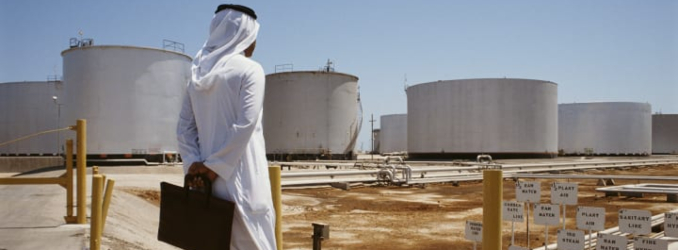Rosneft's Sechin Criticizes Increase in Spare Oil Output Capacity in Middle East, West
(Reuters) — Igor Sechin, CEO of Russian energy major Rosneft, said on Saturday that an increase in spare oil production capacity offset efforts by OPEC+ to reduce oil output.
He said that combined spare oil production capacity of Saudi Arabia, United Arab Emirates, Kuwait and Iraq stood at 5.6 million barrels per day, or 13% of OPEC+ current output.
"The creation of reserves as we observe by both Western and Middle Eastern companies may be an expectation of serious market changes," Sechin, who has been skeptical about Russia's cooperation with OPEC, told St. Petersburg International Economic Forum.
"The presence of such 'phantom barrels', which can have a large-scale impact on the market, offsets the impact of the voluntary reduction in production quotas undertaken by the main OPEC participants," he said.
"This is also shown by the market prices, which went down after the recent decision of the ministers of the (OPEC+) participating countries."
Some OPEC+ members, including Russia, agreed on Sunday to phase out voluntary cuts of 2.2 million barrels per day over a year beginning from October. OPEC+ also agreed to maintain other cuts amounting to 3.66 million bpd until end-2025.
Oil prices have declined this week, with benchmark Brent crude touching a four-month low below $77 a barrel on Tuesday, although prices had recovered to above $79 by the end of the week.
OPEC+ members' production capacity figures have been a historically contentious issue.
Capacity estimates help OPEC+ to establish baseline production figures from which cuts are made.
Member countries tend to fight for higher capacity estimates to gain a higher baseline and end up with higher production quotas after cuts are applied, and hence ultimately higher revenues.
Russia and Saudi Arabia, the world's leading oil exporters, have said they may pause or reverse oil production increases if the market weakens.
Sechin also said that there were many uncertainties on the market, such as the outcome of U.S. presidential election in November.
Sechin, a long-standing ally of President Vladimir Putin, told the forum that the budgets of most OPEC+ participants were able to withstand a possible oil price decline, which would be partially or fully offset by a supply increase.
He also said that an oil price decline could lead to removal of restrictions against the Russian oil in relation to the Western-imposed oil price cap of $60 per barrel.
Related News
Related News

- Enbridge Plans 86-Mile Pipeline Expansion, Bringing 850 Workers to Northern B.C.
- Intensity, Rainbow Energy to Build 344-Mile Gas Pipeline Across North Dakota
- U.S. Moves to Block Enterprise Products’ Exports to China Over Security Risk
- 208-Mile Mississippi-to-Alabama Gas Pipeline Moves Into FERC Review
- Court Ruling Allows MVP’s $500 Million Southgate Pipeline Extension to Proceed
- U.S. Pipeline Expansion to Add 99 Bcf/d, Mostly for LNG Export, Report Finds
- A Systematic Approach To Ensuring Pipeline Integrity
- 275-Mile Texas-to-Oklahoma Gas Pipeline Enters Open Season
- LNG Canada Start-Up Fails to Lift Gas Prices Amid Supply Glut
- Kinder Morgan Gas Volumes Climb as Power, LNG Demand Boost Pipeline Business





Comments